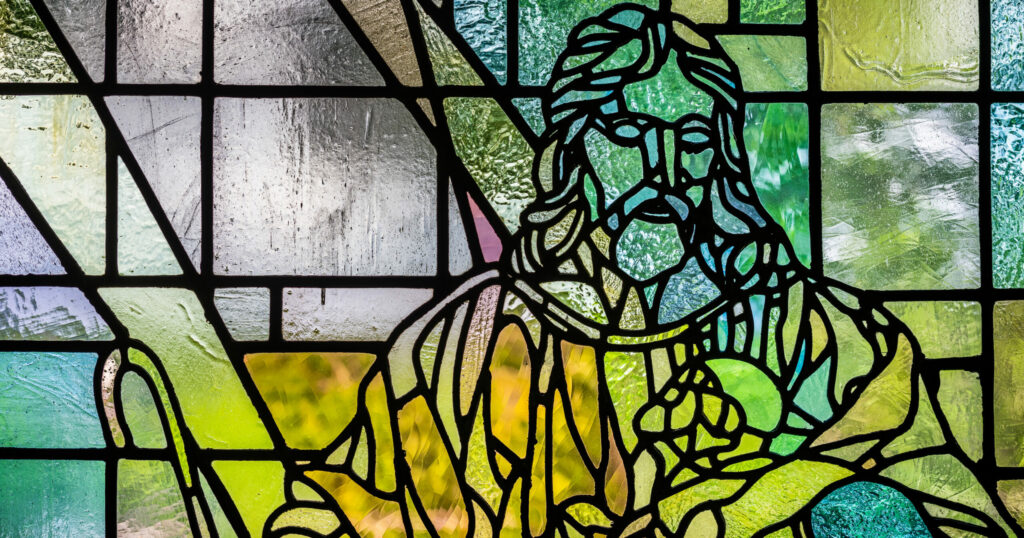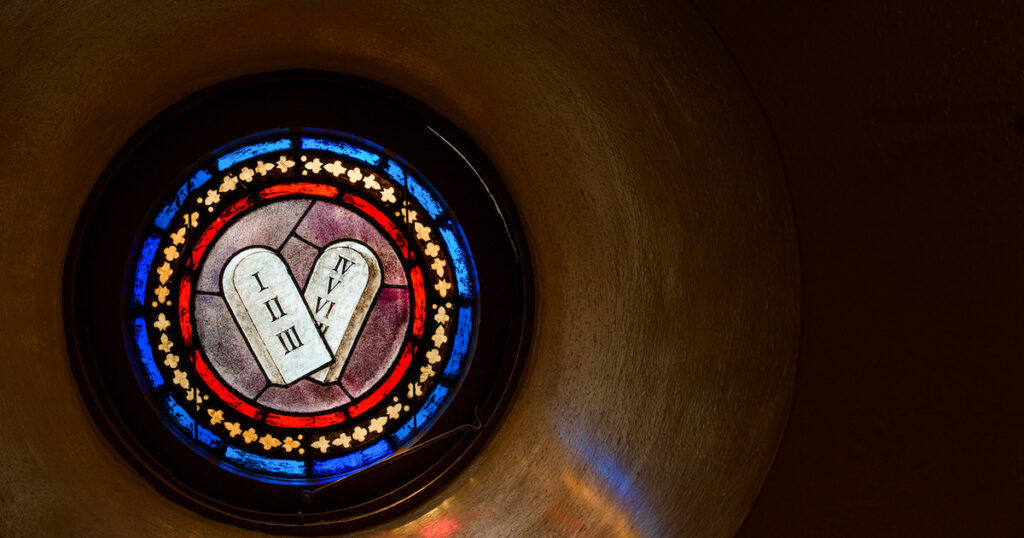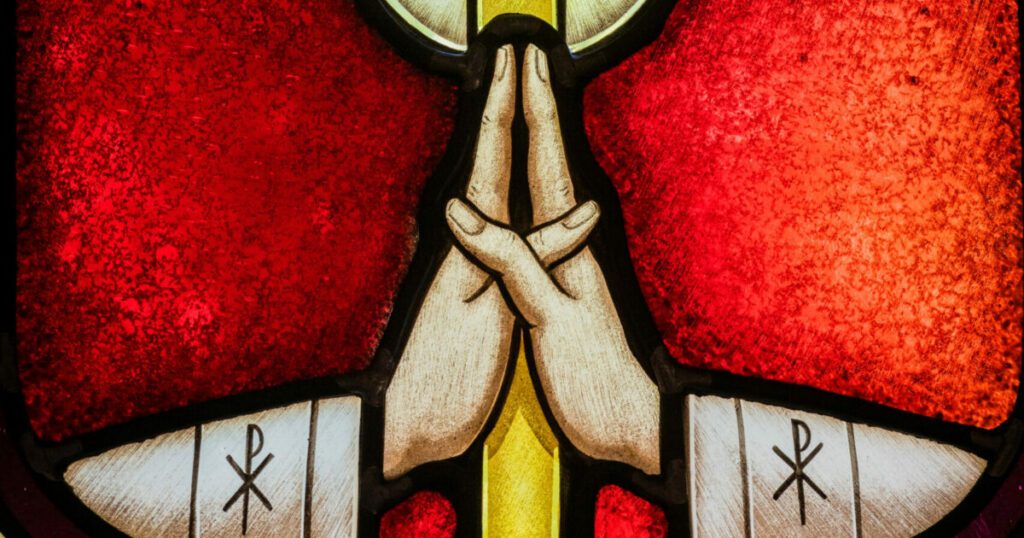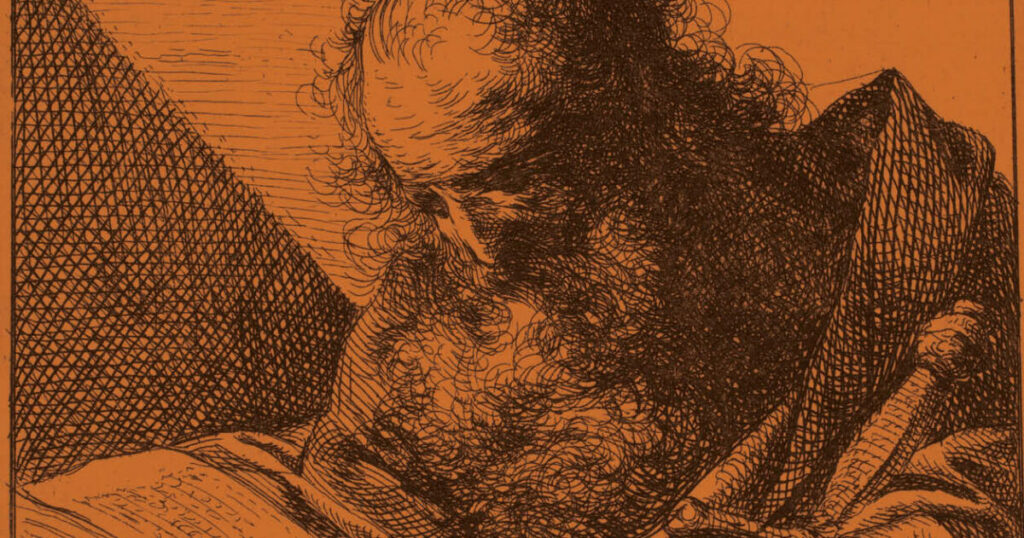by Matthew C. Harrison
Our heavenly Father is pleased when a Christian is absolutely certain of His love and forgiveness now, certain of eternal life with Him upon death and certain of a bodily resurrection like Christ’s own at the Last Day. In the face of all the bad stuff happening to him at the hands of people and of God, Job confesses with absolute certainty:
Oh that my words were written! Oh that they were inscribed in a book!
Oh that with an iron pen and lead they were engraved in the rock forever!
For I know that my Redeemer lives, and at the last he will stand upon the earth.
And after my skin has been thus destroyed, yet in my flesh I shall see God,
whom I shall see for myself, and my eyes shall behold, and not another. My heart faints within me! (Job 19:23–27)
There are many ways we can describe this Christian certainty, but I like to summarize it in the Six Chief Parts of Martin Luther’s Small Catechism (SC).
➊ Ten Commandments.
The law is given to all. Its chief purpose is to drive us to repentance. It is given, says St. Paul, “that every mouth may be stopped, and the whole world may be held accountable to God. For by works of the law no human being will be justified in his sight, since through the law comes knowledge of sin” (Rom. 3:19–20). “The Law is but a mirror bright To bring the inbred sin to light” (LSB 555:3). Christ came for sinners. You’d better be one. There’s no gray here. The law condemns because its demands are not met by us. The law drives us to Jesus who met all its demands and died to put its punishments to death.
➋ The Creed.
The First Article (Creation) teaches that this world and all its inhabitants are God’s precious creation and creatures. It is certain. Our heavenly Father is the source of all that we are, have and enjoy. The Second Article (Redemption) teaches with all biblical certainty that Christ “has redeemed me … not with gold or silver, but with His holy, precious blood and with His innocent suffering and death” (SC, Second Article; See 1 Peter 1:19). My salvation is as certain as Jesus’ conception, birth, life, suffering, death, burial and resurrection. The deed was done already 2,000 years ago. The Third Article (Sanctification) teaches us, “I believe that I cannot … believe in Jesus Christ, my Lord, or come to Him; but the Holy Spirit has called me by the Gospel” (SC, Third Article). My salvation is certain because it’s not won by me, not worked by me, not decided by me, not preserved by me. It’s all God’s working, beginning to end. It’s an “inheritance that is imperishable, undefiled, and unfading, kept in heaven for you, who by God’s power are being guarded through faith” (1 Peter 1:4–5).
➌ Lord’s Prayer.
Jesus promised His apostles, “Whatever you ask in my name, this I will do” (John 14:13). Jesus invites us to pray to Him: “Come to me, all who labor and are heavy laden, and I will give you rest” (Matt. 11:28). Jesus teaches us the very words to pray in the Lord’s Prayer: “Our Father who art in heaven” (See Matt. 6:9–13; Luke 11:2–4). “With these words God tenderly invites us to believe that He is our true Father and that we are His true children, so that with all boldness and confidence [certainty!] we may ask Him as dear children ask their dear father” (SC, Lord’s Prayer Introduction).
❹ Baptism.
By being baptized, Jesus put Himself into Baptism. Jesus mandated Baptism, saying that through Baptism disciples are made of all nations (Matt. 28:19). He also taught, “Whoever believes and is baptized will be saved” (Mark 16:16). The apostles repeatedly taught that Baptism is a saving act, for it connects us with Christ’s death, burial and His resurrection (Col. 2:6–15; Rom. 6). “He saved us through the washing of rebirth and renewal by the Holy Spirit” (SC, Baptism 3; See Titus 3:5–8). Baptism IS the forgiveness of sins. Baptism IS justification. Baptism IS the Gospel. And it’s certain.
❺ Confession and Absolution.
Why do we confess our sin at the beginning of the church service and receive Absolution from our pastor “in the stead and by the command of” Christ (LSB, p. 185)? Why do we sometimes speak with our pastor about challenges in our lives and request in those circumstances that he take us through the order for individual confession and absolution in the hymnal? Because Jesus mandated it. “He breathed on [his disciples] and said to them … ‘If you forgive the sins of any, they are forgiven them’” (John 20:22–23). Jesus said it. Jesus gave it. Faith receives it. It is the Gospel. It is certain. In fact, “this is just as valid and certain, even in heaven, as if Christ our dear Lord dealt with us Himself” (SC, Confession). It’s also meant to open our lips to speak the Gospel of forgiveness to those in our lives.
❻ The Lord’s Supper.
The Lord gives His Gospel to us in manifold ways. Salvation was earned on the cross and is distributed by the proclaimed Word of the Gospel, Absolution, Baptism and the Lord’s Supper. Jesus says, “Take, eat; this is My body … Drink of it, all of you; this cup is … My blood, which is shed for you for the forgiveness of sins” (SC, Sacrament of the Altar). (Those who assert that “this is My body” actually means “this is not really My body” forever have the burden of explaining why Jesus did not mean what He said.) Jesus’ words are clear and very certain. We receive the gift believing Christ’s words. And it is absolutely certain. “Whoever feeds on my flesh and drinks my blood has eternal life, and I will raise him up on the last day” (John 6:54).
I KNOW that my Redeemer lives. He has given all the above and multitudes more so that I may be absolutely certain that I am His baptized child now, and I shall enjoy the resurrection of my flesh, with Him and all the saints, into eternity.
–Pastor Harrison






